The Role of Hydration in Gym Training and Recovery
23 November 2024
When it comes to hitting the gym, most people focus on the big, flashy components like lifting heavy weights, perfecting form, or even counting calories. But there’s one often-overlooked factor that can make or break your workout performance and recovery: hydration. Yep, staying hydrated is more than just quenching your thirst—it’s a game changer for your fitness journey.
Whether you're trying to build muscle, shed fat, or just stay healthy, hydration is key. So, grab a glass of water and let’s dive into why it’s so important for your gym training and recovery.
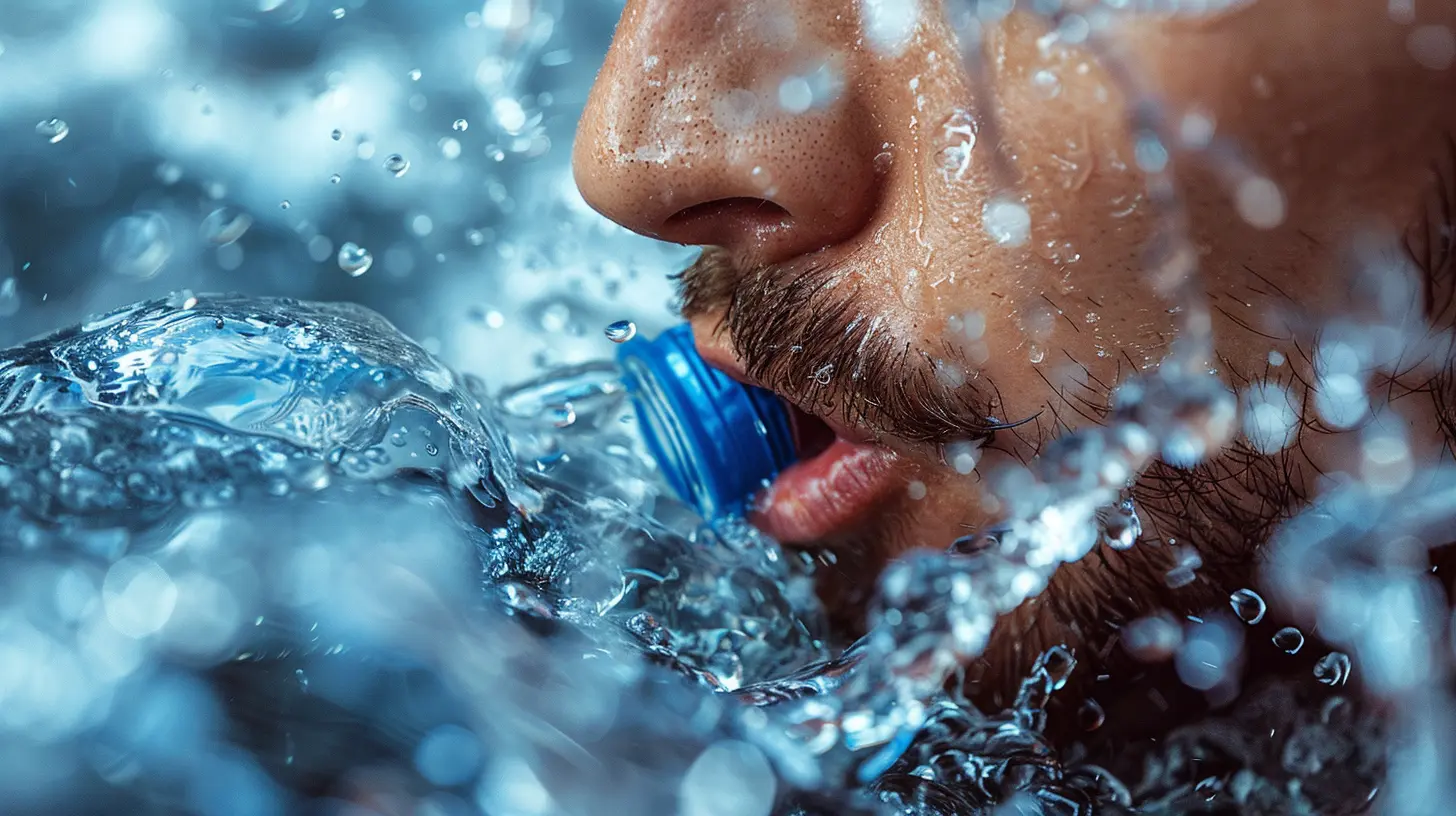
Why Hydration Matters in Gym Training
You’ve probably heard the advice to drink plenty of water, but do you really know why? Hydration is not just about avoiding dehydration. It’s about ensuring that your body performs at its best and recovers faster. Here’s why:1. Water Fuels Your Muscles
Think of your muscles like a well-oiled machine. To keep them running smoothly, they need fuel—and not just carbs or protein. Water plays a critical role in delivering nutrients to your muscles, helping them function properly. Without enough water, your muscles can feel sluggish or weak. This is especially important during intense gym sessions where the demands on your muscles are higher.2. Regulates Body Temperature
When you're working out, your body heats up. To cool down, you sweat. But sweating means you lose water. If you don’t replace that lost water, your body can’t regulate its temperature as efficiently. This can lead to overheating, fatigue, and even heatstroke in extreme cases. Staying hydrated helps your body stay cool and maintain its peak performance.3. Improves Endurance and Strength
Ever feel like you’ve hit a wall mid-workout? That could be dehydration creeping in. Even mild dehydration has been shown to reduce endurance and strength, making it harder to push through those last few reps. When your body is properly hydrated, your energy levels stay up, your muscles contract more effectively, and you can reach your full potential in the gym.4. Boosts Mental Focus
Your brain is made up of about 75% water, so it’s no surprise that hydration affects your mental clarity. During a workout, especially when you’re lifting heavy weights or performing complex exercises, you need to stay focused. Dehydration can lead to brain fog, decreased concentration, and slower reaction times. So, if you want to stay sharp and avoid mistakes, make sure you’re drinking enough water.5. Reduces the Risk of Injury
Hydrated muscles are more supple and flexible. This reduces the risk of strains, sprains, and other injuries. When you're dehydrated, your muscles become stiff and crampy, making it easier to pull something or twist an ankle. Proper hydration helps keep your joints lubricated and your muscles in good shape, which is crucial for injury prevention.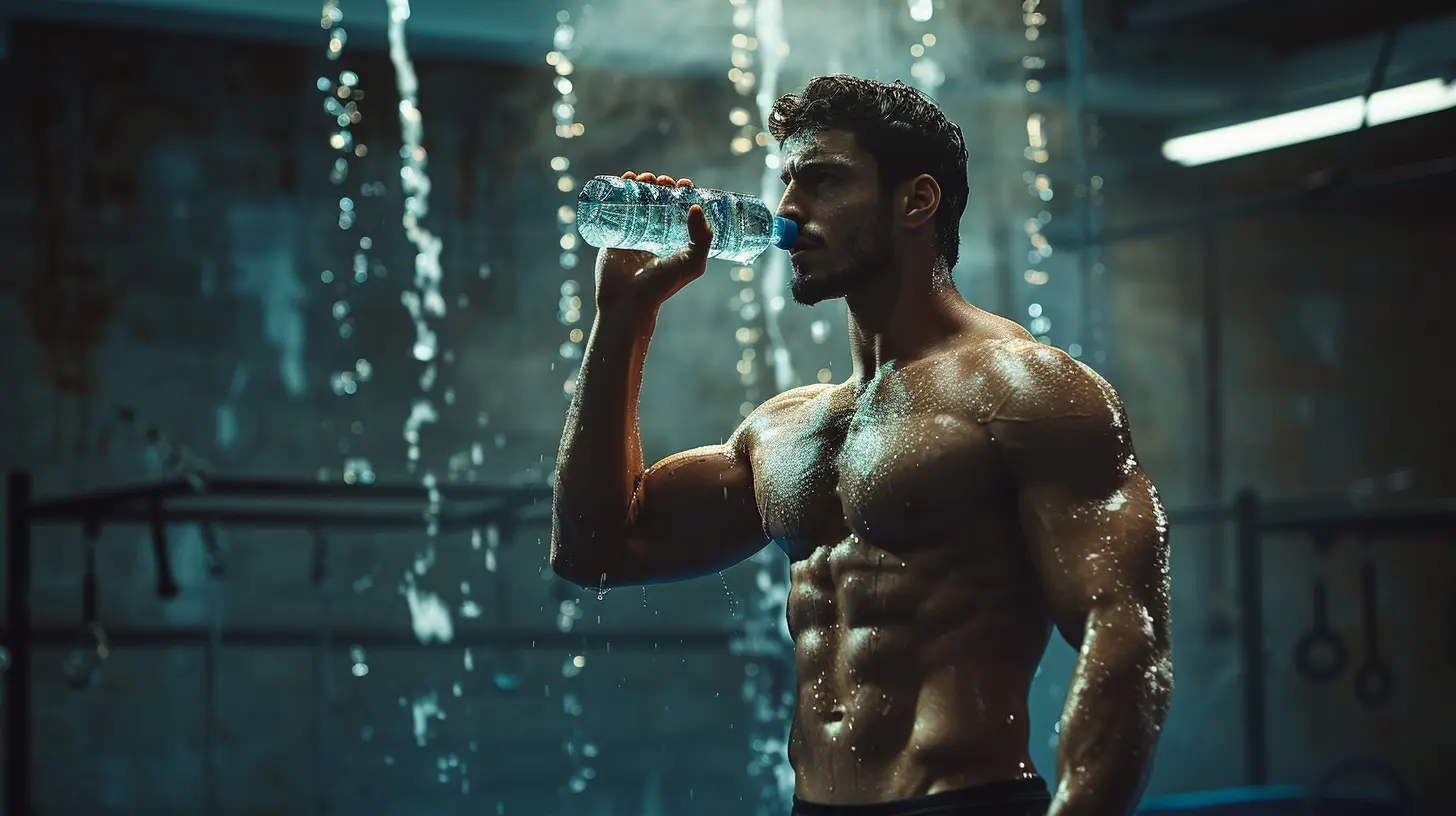
Signs of Dehydration During Workouts
How do you know if you’re dehydrated? Sometimes, it’s not as obvious as feeling thirsty. Here are some subtle (and not-so-subtle) signs that you need to drink more water:- Dry mouth and throat: This one’s a no-brainer. If your mouth feels parched, it’s time to hydrate.
- Dizziness or lightheadedness: This can be a sign that your body isn’t getting enough fluids to properly function.
- Muscle cramps: Cramping is a red flag that your muscles are dehydrated.
- Fatigue or sluggishness: If you’re feeling unusually tired during your workout, dehydration might be the culprit.
- Dark yellow urine: The color of your urine is a great indicator of hydration status. Dark yellow usually means you need more water.
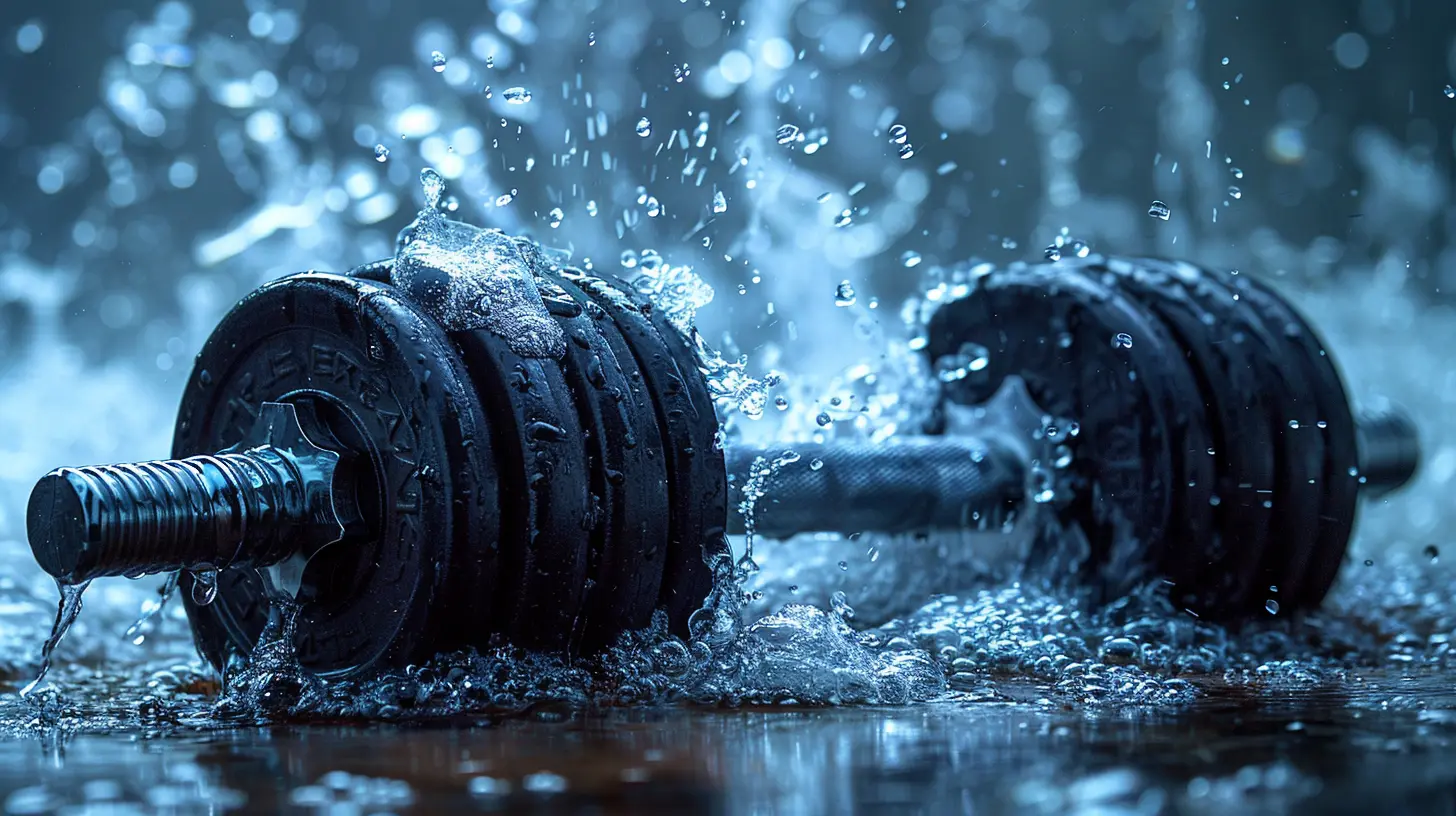
Hydration and Recovery: Why Water is Key Post-Workout
Now that we’ve covered why hydration matters during your workout, let’s talk about what happens after the workout. Recovery is just as important as the training itself. In fact, if you don’t recover properly, you won’t be able to hit the gym as hard the next time. Here’s how hydration plays a role in recovery:1. Replenishes Lost Fluids
After an intense workout, you’ve likely lost a good amount of water through sweat. Rehydrating helps restore those fluids so your body can recover faster. It’s not just about how you feel in the moment—proper hydration post-workout can affect how sore and tired you feel the next day.2. Aids in Muscle Repair
Water is essential for protein synthesis, which is the process your body uses to repair and rebuild muscles after exercise. Without enough water, this process slows down, and your muscles take longer to recover. That means longer-lasting soreness and potentially slower muscle growth.3. Flushes Out Toxins
When you exercise, your body creates waste products like lactic acid, which can lead to muscle soreness. Drinking water helps flush out these toxins, speeding up recovery and reducing post-workout pain. Think of water as your body’s natural detoxifier.4. Reduces Inflammation
Intense workouts can cause inflammation in your muscles and joints. Staying hydrated helps reduce this inflammation and speeds up the healing process. The more hydrated you are, the more easily your body can manage the wear and tear from working out.5. Regulates Electrolyte Balance
After a tough workout, especially if you’ve been sweating a lot, your body loses not just water but also electrolytes like sodium, potassium, and magnesium. These minerals are essential for muscle function and recovery. Drinking water—along with replenishing electrolytes through food or sports drinks—helps restore balance and keeps your recovery on track.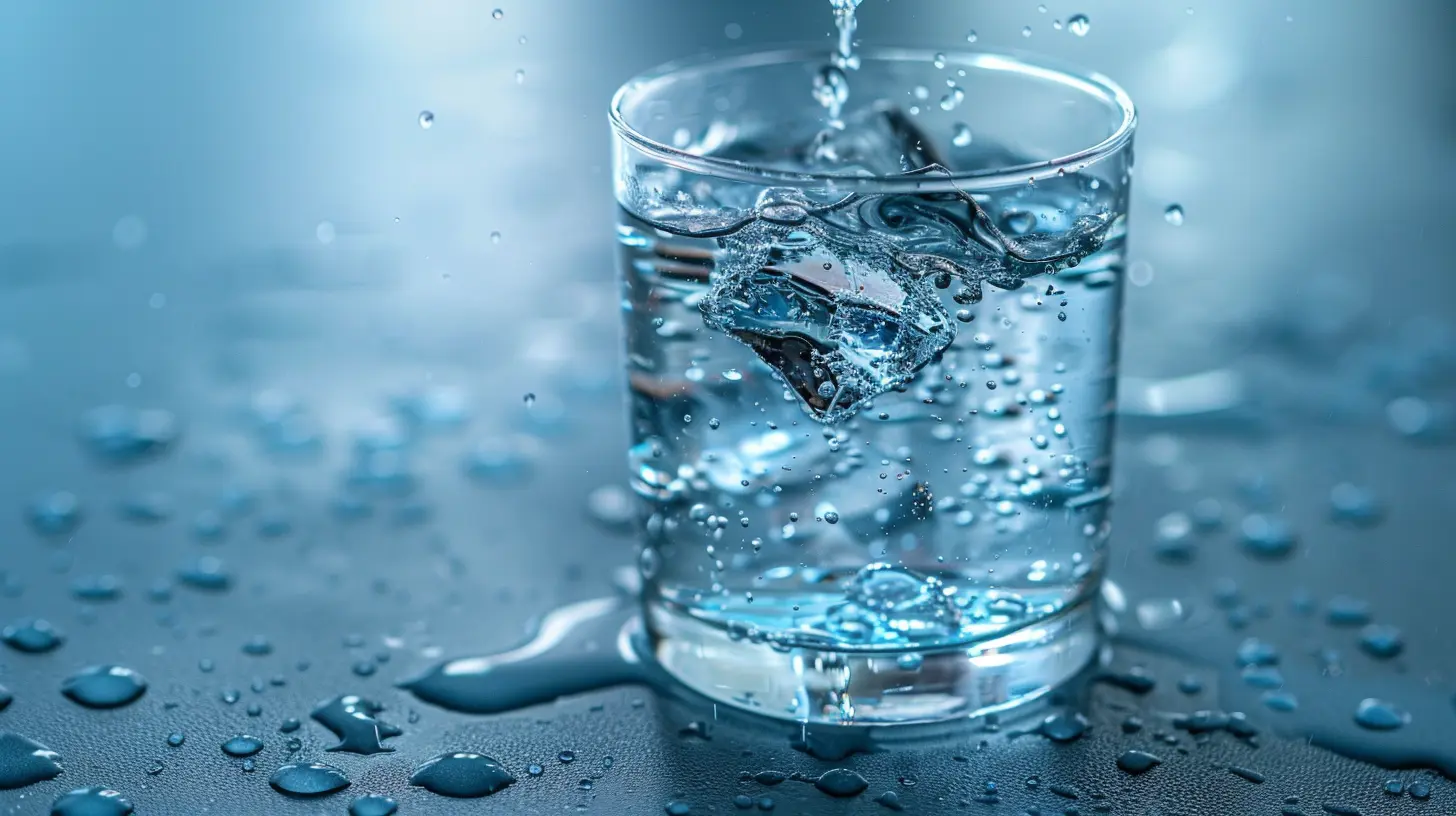
How Much Water Should You Be Drinking?
Okay, so we know hydration is important, but how much should you actually be drinking? The answer isn’t one-size-fits-all. It depends on factors like your body weight, the intensity of your workout, and how much you sweat.General Guidelines:
- Before your workout: Drink about 16-20 oz of water 2-3 hours before exercise. This gives your body time to absorb the fluids.- During your workout: Aim for 8-10 oz every 20 minutes. If you’re sweating a lot, you may need more.
- After your workout: Replenish with 16-24 oz of water for every pound lost during exercise. Weigh yourself before and after your workout to get an idea of how much water you’ve lost.
Special Considerations:
- Hot weather: In hot or humid conditions, you’ll sweat more. Make sure to drink extra water to compensate.- Long workouts: If your session lasts more than an hour, consider adding an electrolyte drink to your hydration routine to replace lost minerals.
- High-intensity workouts: The more intense your workout, the more water you’ll need. Listen to your body and hydrate accordingly.
What About Sports Drinks?
Sports drinks can be helpful, but they’re not always necessary. If you’re doing a moderate workout that lasts less than an hour, water is usually enough. However, for longer, more intense sessions—especially if you’re sweating a lot—sports drinks can help replace lost electrolytes.Just be careful with the sugar content. Many sports drinks are loaded with sugar, which can counteract your fitness goals. Look for low-sugar or sugar-free options, or opt for natural electrolyte sources like coconut water.
Hydration Mistakes to Avoid
Even if you’re aware of the importance of hydration, it’s easy to make some common mistakes. Here’s what NOT to do:1. Waiting Until You’re Thirsty
By the time you feel thirsty, you’re already dehydrated. Stay ahead of the game by sipping water throughout the day, not just during your workout.2. Overhydrating
Yes, there’s such a thing as drinking too much water. Overhydration can dilute the electrolytes in your body, leading to a condition called hyponatremia. This can be dangerous, so make sure to balance your water intake with electrolytes, especially during long or intense workouts.3. Ignoring Recovery Hydration
Many people stop hydrating once the workout is over, thinking the hard part is done. But post-workout hydration is just as important. Don’t neglect drinking water after you’re done sweating.4. Relying Only on Sports Drinks
While sports drinks can be helpful, they shouldn’t replace regular water. Use them selectively, and always check the sugar content.Final Thoughts on Hydration for Gym Training and Recovery
Hydration isn’t just a box to tick off on your fitness checklist—it’s a critical component of your performance and recovery. From fueling your muscles to helping your body repair and recover, staying hydrated is essential for anyone serious about their fitness goals.So next time you’re gearing up for a workout, don’t forget your water bottle. Your muscles, joints, and mind will thank you!
all images in this post were generated using AI tools
Category:
Gym TrainingAuthor:

Preston Wilkins
Discussion
rate this article
20 comments
Haze Martin
Water: the ultimate gym buddy! Think of it as the magic potion that transforms you from a grumpy cactus into a flourishing flower. Stay hydrated, and your muscles will thank you with happy dance moves post-workout! 🌊💪
April 3, 2025 at 10:18 AM

Preston Wilkins
Absolutely! Hydration is crucial for optimal performance and recovery. Cheers to transforming those grumpy workouts into vibrant results! 🌼💦
Astrid Underwood
This article highlights the crucial connection between hydration and performance in the gym. While individual hydration needs may vary, understanding the science behind fluid intake can significantly enhance training efficiency and recovery. A well-rounded approach ensures athletes meet their hydration needs for optimal results.
March 23, 2025 at 5:26 AM

Preston Wilkins
Thank you for your insightful comment! I'm glad you found the connection between hydration and performance valuable. Adequate fluid intake is indeed essential for maximizing training and recovery.
Ashira Dillon
Great insights! Hydration truly makes a difference in recovery.
February 8, 2025 at 3:50 AM

Preston Wilkins
Thank you! I'm glad you found it valuable—hydration really is key to optimizing recovery!
Bethany McKibben
Great article! Staying hydrated is key for maximizing performance and recovery. Cheers to fitness!
January 30, 2025 at 9:46 PM

Preston Wilkins
Thank you! I'm glad you found it helpful. Cheers to staying hydrated and reaching our fitness goals!
Viviana Gomez
Great insights on hydration! It’s crucial not just for peak performance during workouts, but also for effective recovery. Staying properly hydrated can make a significant difference in how we feel and perform. Thanks for shedding light on this vital aspect of training!
January 27, 2025 at 7:18 PM

Preston Wilkins
Thank you for your thoughtful comment! I’m glad you found the insights valuable—hydration truly is key for both performance and recovery.
Hugo Rios
Hydration is often underestimated, yet it's crucial for optimal performance and recovery in the gym. I've noticed a significant difference in my energy levels and muscle recovery since prioritizing proper hydration. It truly makes a difference!
January 22, 2025 at 9:03 PM

Preston Wilkins
Thank you for sharing your experience! Proper hydration is indeed vital for enhancing performance and recovery. It's great to hear that you've noticed such positive changes!
Pearl Carr
Great article! It's amazing how something as simple as staying hydrated can make such a big difference in our workouts and recovery. I’ve definitely noticed better performance and quicker recovery when I prioritize drinking enough water. Cheers to hydration!
January 17, 2025 at 9:14 PM

Preston Wilkins
Thank you for your feedback! I'm glad to hear that you've experienced the benefits of staying hydrated. Cheers to your continued success in your workouts!
Zayden McKay
Staying hydrated is key to maximizing your gym performance and recovery! Water fuels our bodies, enhances endurance, and aids in muscle repair. Remember, every drop counts—drink up, and unlock your full potential in every workout! Keep pushing!
January 14, 2025 at 5:20 AM

Preston Wilkins
Thank you for emphasizing the importance of hydration! It truly is vital for peak performance and recovery. Every drop makes a difference!
Yazmin Rocha
Great article! Staying hydrated makes such a difference in my workouts and recovery. It's funny how something so simple can have such a huge impact on our performance! Cheers!
January 7, 2025 at 12:34 PM

Preston Wilkins
Thank you! I'm glad you found the article helpful. Hydration truly is a game-changer for performance and recovery. Cheers!
Gwen McLain
Hydrate or die—water’s your ultimate gym partner!
December 31, 2024 at 5:07 AM

Preston Wilkins
Absolutely! Staying hydrated is crucial for optimal performance and recovery—water truly is a gym essential!
Velvet Cook
Hydration is vital for maximizing performance and recovery in gym training. Proper fluid intake supports muscle function, prevents fatigue, and enhances overall gains. Stay hydrated for optimal results!
December 26, 2024 at 1:53 PM

Preston Wilkins
Thank you for emphasizing the critical role of hydration! Staying properly hydrated is indeed essential for maximizing performance and recovery in gym training.
Oscar McIlwain
Great article! Hydration really is the unsung hero of gym training and recovery. I’ve definitely felt the difference on days I focus on staying hydrated. It’s amazing how much better you can perform and recover when you give your body the water it craves! Stay hydrated, everyone!
December 24, 2024 at 3:33 AM

Preston Wilkins
Thank you for your thoughtful comment! I'm glad to hear you’ve experienced the benefits of staying hydrated. It truly makes a significant difference in performance and recovery!
Logan Harmon
Hydration isn’t just a side note; it’s the lifeblood of your training and recovery. Skip it, and you’re sabotaging your gains. Water isn’t optional; it’s non-negotiable. If you’re serious about your performance, drink up or don’t bother showing up at all.
December 21, 2024 at 5:11 AM

Preston Wilkins
Absolutely! Hydration is crucial for optimal performance and recovery. Prioritizing water intake can significantly enhance your training results. Thank you for highlighting this essential aspect!
Remington McKinney
Hydration is crucial for enhancing performance and speeding up recovery in gym training. Proper fluid intake improves endurance, reduces fatigue, and supports overall health during workouts. Stay hydrated!
November 25, 2024 at 9:30 PM

Preston Wilkins
Thank you for highlighting the importance of hydration! It's essential for optimizing performance and recovery in training.
Kristy McKay
Great insights on hydration! It's fascinating how much it can impact performance and recovery. I'm curious to learn more about specific hydration strategies for different types of workouts.
November 25, 2024 at 12:26 PM

Preston Wilkins
Thank you! For specific hydration strategies, consider tailoring your intake based on workout intensity and duration. For short, high-intensity workouts, water may suffice, while longer sessions may benefit from electrolyte-rich drinks. Always listen to your body and adjust accordingly!
Lorna Clarke
While the article emphasizes hydration's importance, it overlooks individual needs based on body type, exercise intensity, and environmental factors. A more tailored approach could enhance training outcomes and recovery effectiveness for diverse athletes.
November 25, 2024 at 3:42 AM

Preston Wilkins
Thank you for your insightful comment! I appreciate the emphasis on individualized hydration strategies, and I agree that considering body type, exercise intensity, and environmental factors is crucial for optimizing training and recovery. This is an important area for further exploration.
Sonya Anderson
Great article! Staying hydrated is such a game-changer for workouts and recovery. I've noticed a huge difference since I started paying attention!
November 24, 2024 at 12:57 PM

Preston Wilkins
Thank you! I'm glad you found the article helpful. Staying hydrated truly makes a significant impact on performance and recovery!
Josephine McCarthy
Great insights on hydration! Staying properly hydrated is crucial for optimal performance and recovery in gym training—definitely a key takeaway for athletes!
November 23, 2024 at 8:01 PM

Preston Wilkins
Thank you! Hydration truly is essential for peak performance and recovery. Glad you found the insights valuable!
Tamsin Robinson
Hydration is crucial for optimal performance and recovery in the gym. It enhances endurance, reduces fatigue, and aids muscle repair. Don’t underestimate the power of staying hydrated!
November 23, 2024 at 1:46 PM

Preston Wilkins
Thank you for highlighting the importance of hydration! Staying properly hydrated is indeed key to maximizing performance and supporting recovery.
Sloan Hill
Great article! Hydration is crucial for optimal performance and recovery. Staying properly hydrated can make all the difference in achieving your fitness goals. Keep up the fantastic work and stay refreshed!
November 23, 2024 at 4:57 AM

Preston Wilkins
Thank you for your kind words! I completely agree—hydration is key to maximizing performance and recovery. Stay refreshed!
MORE POSTS

The Challenges of Playing Cricket in Extreme Weather Conditions

The Growing Importance of Mental Health in Professional Leagues

How Weather Conditions Impact Cricket Strategy and Performance

How New Rules Are Shifting the Balance Between Offense and Defense
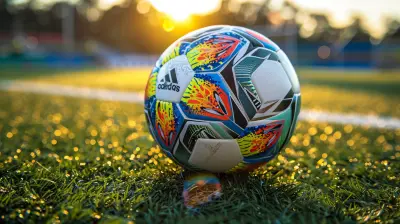
The Science Behind High-Tech Soccer Balls

The Future of VAR: How New Guidelines Are Shaping Decisions

Best Soccer Shin Guards for Protection and Comfort

Traveling for Motorsports: Top Destinations for Racing Fans

How Fighters Handle Defeat: Lessons from the Cage
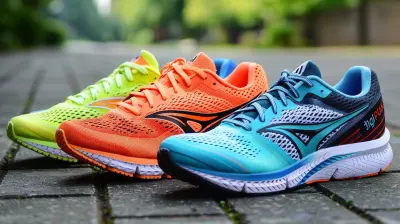
Choosing the Right Running Shoes for Maximum Performance

From the Pitch to the Court: Comparing Leadership Styles in Different Sports Leagues
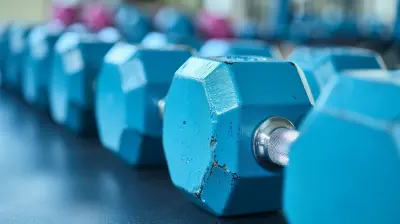
How to Track Your Progress in the Gym Without a Scale